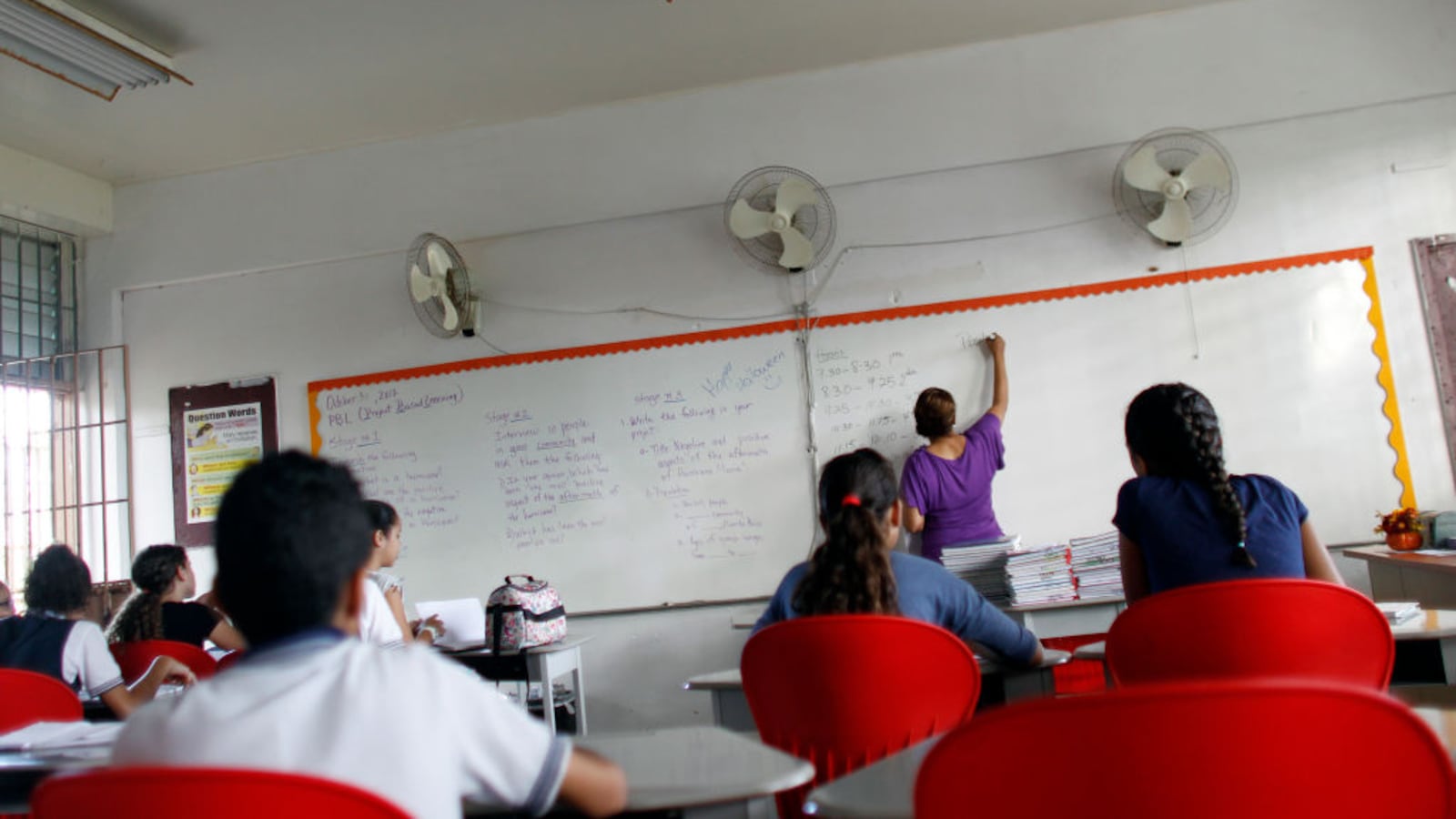Shortly after assuming the responsibilities of Puerto Rico’s Secretary of Education in 2017, I was confronted with the harsh reality of how students and families on the island are affected by poverty.
During school visits in those early months, I met hundreds of smart, hardworking students who lacked notebooks, pencils, or other basic supplies. Many were missing parts of their uniforms, and others wore uniforms that were obviously too big or too small. Teachers and principals would identify students who, more days than not, showed up to school hungry and tired. One school found that over half of its entering first-graders had undiagnosed vision problems.

I remember asking myself, how did we get to a point where this level of need was the norm?
I’ll be honest: I was often taken aback, even after a career working in under-resourced schools and communities. And that was before Hurricane Maria, whose devastating impact was not first felt until September 2017.
When Hurricane Maria passed over the island, the most vulnerable segments of Puerto Rico were disproportionately impacted by the devastation. Today, the struggles of those families continue, lost in the swirl of other breaking news.
I resigned as secretary a few months ago. But I am committed to getting more people to realize our moral imperative to help Puerto Rico’s young people. I worry that, instead, there will be a collective failure to act.
Let me remind you of the stakes. A 2016 government report found that nearly 1.5 million Puerto Ricans were living beneath the federal poverty level. In 2017, the share of eighth-graders who demonstrated proficiency on the federal NAEP math assessment rounded to 0 percent.
Since the storm, schools and government agencies have worked to help families address their immediate needs, though a sizeable number of children still lack adequate food, clothing, and shelter. This leaves little opportunity for enrichment experiences that would enhance children’s well-being, personal development, and cognitive growth. And even if those opportunities could be provided, many children and their families struggle to recover psychologically from Hurricane Maria. Research continues to show high rates of post traumatic stress among the island’s school-age population.
Puerto Rican educators have long been working hard to educate children living in poverty. Teachers, principals, and administrators understand how students’ living conditions can compromise their growth, development, and readiness to learn.
In the face of the obvious lack of funding, I watched caring and committed teachers and principals go the extra mile. Schools organized donation drives, connected families to outside resources, and developed creative ways to compensate for a lack of material resources. Puerto Rico’s incredible cadre of school social workers are exceptionally skilled at helping families navigate crises. They work tirelessly in schools across the island, to deliver customized workshops that teach teachers, students, and families strategies for dealing with post-traumatic stress.
It was amazing to witness how these individuals, who had been impacted by Hurricane Maria themselves, dedicated their energies to ensuring school communities could become more resilient.
But their efforts could only go so far. During my tenure as secretary, we worked to improve the quality of educational programs and support services available to students. The truth is there were simply not enough resources available.
Every year, as we prepared the agency budget request, I found myself frustrated by funding limitations and government-wide fiscal constraints. With its current levels of funding, the Department of Education cannot meet the needs of its students.
I accepted the challenge of leading public education in Puerto Rico because I believed I could make a difference. I wish we would have been able to do much more to address the effects of poverty on students’ growth and development.
Now, I hope federal funding for desperately-needed health and nutrition assistance programs will grow. I hope future school budgets are sufficient to ensure no student goes without notebooks, pencils, a well-fitting uniform, and a counselor who can guide them as they make academic and career choices.
Poverty in Puerto Rico should concern all Americans — including those who advocate on the mainland for better schools and antipoverty programs. Puerto Rican children are American children, and they have every right to realize their dreams of becoming our next entrepreneurs, scientists, athletes, leaders, and stars.
Julia Keleher is the former Puerto Rico education secretary.
About our First Person series:
First Person is where Chalkbeat features personal essays by educators, students, parents, and others trying to improve public education. Read our submission guidelines here.


